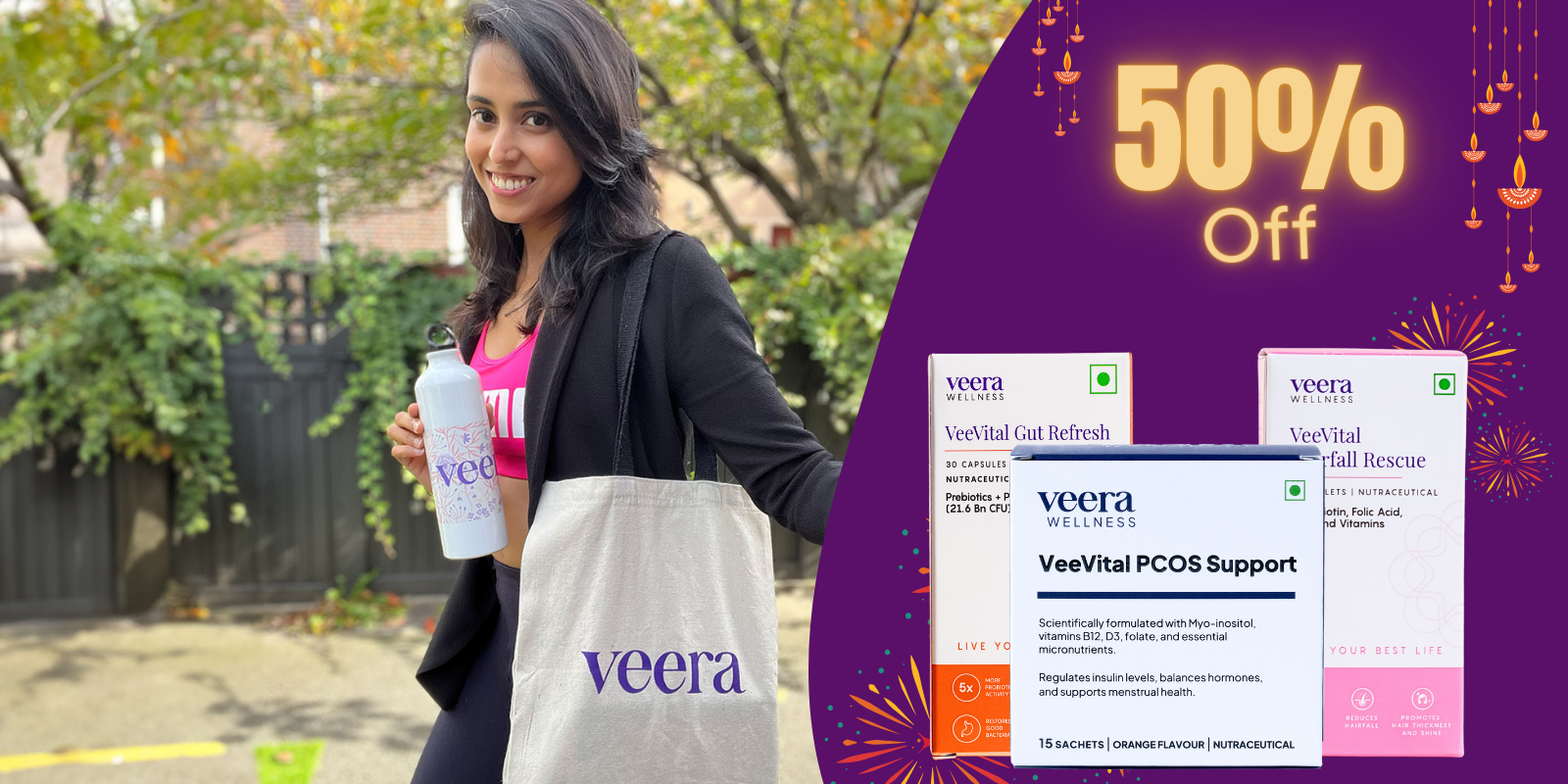Whether you realise it or not, habits govern your life. From waking up at a set time, to making your morning coffee, eating breakfast, doing household chores — are all a part of your routine that is developed out of habit. Although you did not explicitly practice this routine, the regularity or the repetitiveness of it turned it into a habit. Now for PCOS, sustainable lifestyle changes are required to control the symptoms in the long-term. Basically, following a healthy lifestyle needs to be a habit and not something you do sparingly.
But what does it take to build a new habit? How can you build sustainable habits and reverse PCOS for life?
-
Take small steps
I will lose 10 kgs in one month, I will exercise for 2 hours daily — are some examples of setting unrealistic goals for yourself. Go big or go home mindset does not apply to goals. Set small, tangible goals that are attainable. For example, instead of saying you’ll work out for 2 hours daily, make it a habit to stay active throughout the day and perform any physical activity you enjoy for 30 mins to start with. You can always build on a goal or a habit as you progress but when starting out, be aware of what you can achieve in a given time and work towards making small steps because every bit of progress matters.
-
Do it every day
By definition, ‘habit is an acquired behaviour that you do regularly or repeatedly’. Although you have a task set in mind, it won’t become a habit unless you don’t do it regularly. For example, if you know you have to workout 30 minutes everyday, fit it in your schedule. You could either do it first thing in the morning or in the evening after work. Whatever your preference be, having that activity as a part of your normal schedule will help you naturally ease into a form of habit.
-
Bundle your habits
The best way to form a habit is to do something you enjoy doing already with a not-so-fun activity. For example, if you love listening to music or podcasts, tie it with the habit you’re trying to build, say walking or running. So when you combine a behaviour that gives you instant gratification with an obligatory task — you automatically enjoy performing the activity. Another way could be to combine it with an existing habit. For example, if you watch TV or Netflix at the end of the day, instead of slouching on your sofa, practice simple yoga poses or do some stretching to add to physical activity.
-
Have someone to keep you accountable
Accountability helps you stay focused and save time from being spent on unproductive activities. But accountability works best when it comes from outside. For example, you are more likely to exercise if you promised your friend for an evening walk or have a personal trainer at the gym. And if you don’t prefer involving anyone, you can stay accountable to yourself as well by creating small nudges such as daily reminders, or tracking your progress through apps. If you’re looking for an accountability friend, find someone who has similar goals to you – such as getting daily exercise for 30 mins. When you have an accountability friend, there is a gentle peer pressure to show up and do things that you committed to do. However, when building a habit, don’t solely focus on success and failure, focus on developing healthy behaviours that will as a result give you better outcomes.
-
Setbacks are normal
Habits take time to develop and there might be days you were not able to do the things that you were supposed to — and that is okay. One way to prevent setbacks is it to be aware of them. Did you skip workout because of your busy schedule? Or couldn’t follow your diet because you did not have the time to cook a meal? You can fix this by starting your day an hour earlier and going to the gym in the morning or doing meal prep over the weekend so you know it will be easier for you to cook during weekdays. Regardless, if you do face setbacks, don’t feel discouraged. Just get back to the routine as soon as you can
Lastly, remember that any long-term change takes time, so be compassionate with yourself and trust the process. With or without PCOS — following a healthy lifestyle is a must for everyone and when you develop healthy behaviours out of habit, it won’t feel like a duty anymore.
Disclaimer: Content on Veera is provided for informational purposes only and is not intended as medical advice, or as a substitute for medical advice given by a physician





















